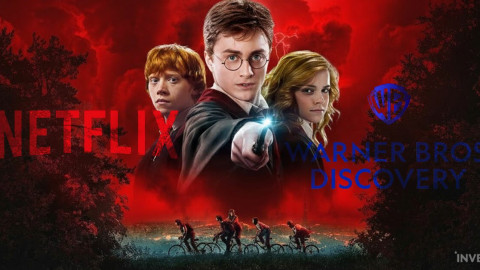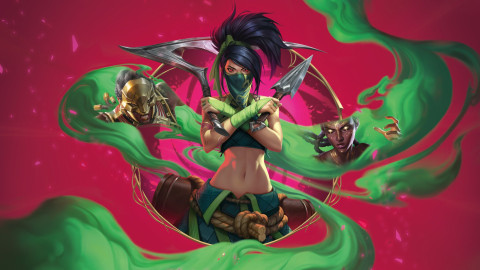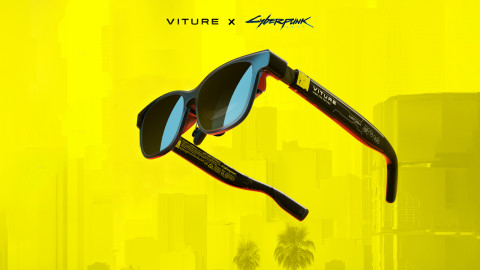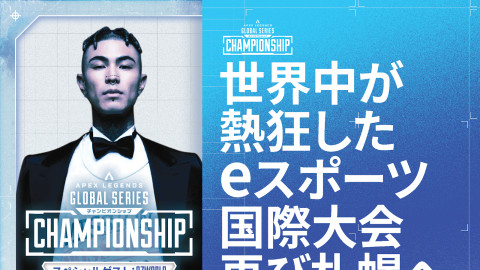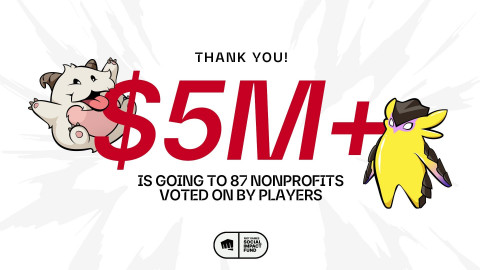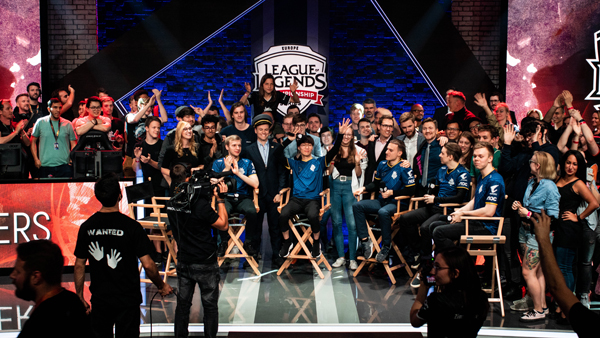
As 2019 will be marking the end of an amazing last year of the EU LCS as well as the last of the brand and the first of the LEC. We had an amazing year for League of Legends, especially in Europe. 2018 has been also the first year Asian teams looked vulnerable and beatable in a long time while others despite less expected wrote their names in the history, respectively with some of the biggest upsets in competitive League of Legends.
It started with a lot of change, North America was already going into a franchising model, while Europe was still figuring out their plans all the teams stacked up a lot of talent coming into the year. It was a year with stacked names in the rosters and the coaching staffs.
The teams invested not only in some of the best players but also in very talented rookies as well. For the European teams some extremely prominent aspect, Korea was in a transition process and had no super team this year.

There was literally no SKT this year. SKT didn’t have their usual success, they struggled and so did the rest of the teams in Korea. Griffin, the rookie team almost made it worlds after almost winning the LCK summer finals against KT Rolster just to get knocked out by GEN.G in the gauntlet run and the next thing everybody saw was the winners of the last world championship struggling with themselves and getting knocked out at the group stages.
Of course the Chinese teams looked stronger than ever and there were enough strong Asian teams so the west doesn’t get the world championship in the end, however, all the teams looked vulnerable. They weren’t some super Saiyajins or the gods the western teams failed to beat the previous years. For the first time in years, we had a western team in between the favorites, Fnatic was looking stronger than ever. In fact, the west was looking stronger than ever despite Uzi trying to prove that Royal Never Give Up would just win everything this year. The fans had hope and not only in Fnatic but we also had hope in Cloud 9 and G2 Esports fought their ways into our hearts as they fight their ways into the semi-finals when everybody already counted them off at the European regional. Maybe we were also lucky enough that Fnatic didn’t face KT or RNG in the semi-finals either to benefit our narrative either way. As viewers, we won in 2018, however, there is a reason for all of this and the meta plays a big part in this.
Changing the Game
“What happened was something that was viable all along”, everyone was so rooted in the way to play the game.” , Jakob “Yamatocannon” Mebdi.
While researching for this piece I interviewed several people and those words from Yamatocannon got stuck in my head. Mages played in the bot lane weren’t necessarily a new concept. They were just forgotten or often in the shadows of what we were used to play. Maybe there were one or two picks throughout the years that might have been good enough to be played in the bot lane, but we never did or maybe tried due to a metagame we play now for years. Adding to that AD carries looked worse than ever for a couple of patches at the beginning of the Summer Split, however, they weren’t completely unplayable.
Many Asian teams, Team Liquid or Misfits Gaming for example stuck to their AD carries in the bot lane, something they obviously felt more comfortable playing with and had good results with. For example, the first teams really committing to the idea of playing mages on bot were actually in the Brazilian region, before the European teams started picking up the idea of playing them competitively in the bot lane, there were teams in Brazil already practicing them for their weekly CBLOL matches. The meta turned upside down, it changed a role that was so far almost unchanged in 7 years to a completely new thing. The skills AD carries honed for the past years were almost unusable for the most champions, you were playing mages, no more kiting, no more auto attack based DPS, now you are playing a caster without any physical damage. It is a big change and not only to get through to learn a whole new champion pool, but it is also a totally different way to play.

However all of this had some positive aspects, how teams will choose their subs in the upcoming years or that ad carries are now effectively just bot laners and will have to be comfortable playing both ad carries and mages in the bot lane in future occasions. The other aspect it forced a drastic change in a very short amount of time and this lead to most European teams completely committing to their comfort zones, committing to their styles. It forced the teams to find what they were good at to get through this meta mess. G2 with their Heimerdinger picks, the bot lane snowballing of Misfits, the early aggressiveness of a Vitality to a strong teamfight of Fnatic. All of them had something unique, a strategy that fit their team and no one else.
This was something all across the board and not only the top four in Europe.
Everybody tried their own thing, respectively ones more successful than others.
Still, this gave the European teams an advantage towards the international competition, then in NA besides Cloud9 everyone was trying to beat Team Liquid at their game. Cloud 9 was the only team playing and testing around with different line-ups and strategies throughout the whole split, not afraid to lose, but to be more versatile when needed. You never knew who would be starting for Cloud 9 and this was a dangerous weapon.
The Europeans prepared themselves better for an international event as every single team was playing something completely different at some point. Although during the playoffs we had a clear meta preference in Urgot's and Aatrox picks, besides that everybody played a different game until the end of the season. The teams forced themselves to adapt.
They pushed themselves to prepare better for each match and this lead to an overall more competitive year in the European region.
“I think we had better and more experienced top teams this year.” - Hussain “Moose” Moosvi
The results were highly influenced by the quality of coaching in this year of the EU LCS.
The fact that we’ve seen a rise in a higher level of gameplay is backed by great coaches.
According to Misfits Head Coach Hussain this year the quality of the coaches in the League was higher either due to more experienced coaches or due to really understanding their team's needs. We had some very talented newcomers as former Schalke’s and now Origen’s coach André Gilhoto was able to understand and execute really well what Schalke needed, the addition of the experienced Peter Dun to Splyce or simply Youngbuck bringing over fresh ideas from G2 to the already stacked Fnatic roster or Yamato finding Vitality’s groove pushed everyone to their limits. The combination of those two aspects was definitely a huge key to the rise of the region this year. Hussain’s explanation for that was that most of the team’s coaches and players synced up. Leading up to overall more success as a region as the teams constantly forcing each one to be one step ahead at each encounter.

Despite having a hard time during the playoffs, G2 managed to find themselves again and showed a much better performance than most of the split. They showed resilience and adaptation towards their opponents in the region.
Worlds 2018
For example, Worlds this year, G2 was one of the three teams that qualified to the Worlds play-offs that overcame the play in stage. Three out of four of those play in teams made it to top 8 and grew throughout the whole tournament, with both Cloud 9 and G2 upsetting Asian favorites and going further than anyone expected them to go. And let’s be honest worlds was a total success.
It was fun, western fans finally could hope for a title and we’ve seen some amazing teams grow throughout the competition across the tournament. As we’ve witnessed Invictus Gaming’s TheShy and Rookie “flex” over their opponents and showcase their incredible raw talent or the whole team in their growth throughout the whole tournament, showing almost flawless preparation for every playoffs set they played. While we all expected Fnatic to be the favorites in the Finals, they were prepared to just destroy Fnatic the whole time.
Even if the ending was bittersweet we had the incredibly hyped up matchups of Cloud 9 vs Fnatic, G2’s Upset against RNG and IG taking out the favorites of KT Rolster earlier than expected. It was a great tournament with a fairly balanced meta to entertain us.
Adding top that the world’s production was a success. And not because the west did well, but because everything seemed right. The Production seemed to be on point, the talent invited to the smooth production of the whole broadcast. It was fun and really entertaining. The additions of Raz to the play-ins production was once again refreshing, fun and really insightful. His synergy with the rest of the usual LCS broadcast members was at its best and the combination of entertainment and insightful analysis brought the rest of the talents around him to join in creating a wholesome experience. The production team didn’t fail once to bring in the energy and hype of all the games despite the remote production. All the fear of the community didn’t occur. The production was a total success, with the decision to have a team on the road combined with the talented team in Los Angeles in the Studio showed that the production is on par with the biggest of the traditional sports competitors in all senses. We barely had any issues and as the casters mentioned previously and after the whole tournament it was a much more comfortable situation overall for them since they wouldn’t have all the travel stress. We did an interview with Quickshot about this as soon as the changes were announced.
Bridging culture with KPOP

The last thing we could not oversee was how the virtual and League of Legends themed KPOP group K/DA took over the world by storm. Riot Games already did a virtual band in Pentakill, a line of themed skins around the metal band appeared for its band members in the game and has been used on several occasions for content around the game and even opening of their Esports events. Just as Riot Games also put out soundtracks to the game and made live performances with the written music on several occasions. Technically K/DA could have ended up as one of those amazing experiences, a cool gimmick, if you are a fan of the game already or also a smart marketing activation to combine the way League of Legends could get known through its music experiences first. However, K/DA was something else.
KPOP has been the hyped up trend of the past couple of years on the internet already, some would also say an important part of the Esports culture due to previous tournaments playing Hyuna’s Bubble Pop in the breaks between games and as Korean culture is an immersive aspect of the Esports culture itself, but KPOP started taking over the western world in the past couple of years and the few shows BTS did in the west were sold out in a couple of minutes. This was more than Riot creating something cool for the fans and community, they showed us the effect music has as a marketing tool while they bridged several cultures in just one song. K/DA’s song popstars was a multicultural experience we hadn’t seen presented in this exact way. To be frank we’ve never seen a game publisher create a virtual band around their game combining Asian and western music while being presented and marketed to the world as just a standard pop group. It definitely helped that the animation and the whole music video was an impressive piece of work by everyone involved.
In case you somehow missed it:
2018 was a great year for League of Legends and Esports fans worldwide.
2019 looks even brighter for us, let's get excited about some great games and be hyped for the LEC to kick off as well as the revenge of the Koreans.
And hope this year’s international competition is just as hype as the ones this year.
Shoutout to Yamatocannon, Phreak, Medic, and Hussain for adding their perspectives towards the topic, answering a lot of questions and adding some context to this amazing year of League of Legends.
Disclaimer: The following article was written freely based on the author's opinion, and it may not necessarily represent Inven Global's editorial stance.
Sort by:
Comments :0


